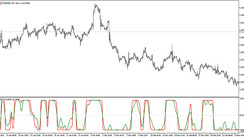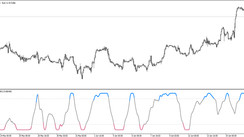Car insurance is one of the most essential parts of an adult's life. But car insurance is just as complicated as it is necessary. It is imperative for every driver to be aware of all the aspects of car insurance, how it works, and how to get the best out of it at the lowest rates.
Have you ever wondered why car insurance companies do not offer a single price for everyone? Some people have to pay a lot while others pay so less. Why do people have to give their details and get a custom quote?
How Insurance Rates are Determined
Insurance companies are cautious when taking new customers. Since the entire insurance industry depends on sound risk management, car insurance companies must ensure that the risk of an insurance claim is the least to make a profit.
It is why car insurance companies ask for every possible detail that would determine your driving pattern and the likelihood of a car accident. If a person is more likely to get in a car accident, they will be charged more to offset the risk of an insurance claim.
These factors include driving record, age, gender, location, make and model of the car, and in some states, credit score as well. All these factors impact your car insurance rates.
Out of all the different factors that car insurers consider, one of the most impactful factors is the auto insurance claim history. Auto insurers look at how many claims the person has made in the last seven years, including all the accidents, tickets, traffic violations, and other charges.
How do insurance companies check your car insurance claim history, and is there a way you can do that? Let's take a look at everything you need to know about checking all the previous insurance claims (and tickets) on your name.
CLUE Report: All You Need to Know
Almost all the major auto insurance companies rely on one report to find the car insurance claim history; the CLUE report. CLUE stands for Comprehensive Loss Underwriting Exchange, and this report contains the insurance claim history of drivers.
The CLUE report is maintained by the company LexisNexis, and if you are a driver and have had many claims in the past seven years, it will be mentioned in your CLUE report.
The CLUE report is not the only report to find insurance claims history. Verisk is another company that offers a similar report called A-PLUS, but it has never caught the popularity that CLUE did.
CLUE is the go-to when it comes to any car insurance company looking for past insurance claims. This report keeps all the insurance claims records of the past seven years. So you will not find any claims if you are looking for something older than seven years.
How is CLUE Formed?
CLUE is a detailed document containing all the vital information insurance companies need to assess the risks and set the price. It contains:
- Name of the person
- Date of birth
- Address
- Social Security Number
Not just your personal information; it contains all the details of your insurance claims history. The information included in this report are:
- Policy number associated with the person
- Date and type of accident
- Insurance claims that were approved
- Insurance claims that were denied
- Inquiries related to insurance
The CLUE report only contains information relevant to insurance companies. Here are all the things that are not included in the CLUE report
- Credit score
- Criminal Record
- Lawsuits
The CLUE report is formed by information provided by insurance companies, DMV records, etc. If you make an insurance claim, the auto insurer will include it in your CLUE report. For example, when you get in a car accident, it is required by the DMV.
Cost of the CLUE Report
The CLUE report is absolutely free to view. You can get your personal CLUE report to check any past claims or other records if you have been noticing increased insurance rates. There are many accidents or incidents that you might have forgotten.
If you are getting high rates for auto insurance policies, perhaps you are not searching for the right insurance companies or the proper way. Always be specific with your search terms and compare all the options to find the best option.
For example, suppose you are a resident of Illinois. In that case, you need to find the best Illinois car insurance companies, get quotes, compare the coverage option, and then select the option that offers the best coverage at the lowest price.
The more you compare, the more you save on auto insurance policies. But make sure that cost is not the most critical factor in your purchase decision.
How to Get CLUE Report
Getting your personal CLUE report is very easy. All you need to do is give them a call at their official number or visit their website's LexisNexis personal reports section to get a copy of your CLUE report.
Do note that according to the Fair Credit Reporting Act, you are entitled to get the report for free once per year. If you want to access the report more than once a year, you may need to pay some amount.
If you get your report and see an accident that did not happen or any false information, you can dispute it. You could do that either by contacting your insurance agent or insurance company if it was reported by them.
Or you can contact LexisNexis by sending them an email or calling them to report the error.
Conclusion
That was all about how to check your car insurance claim history. Not all accidents will be reported on your CLUE report, but that's a rarity. Since the contribution makes the report of insurance companies, some companies opt out of it.
So go ahead and get your CLUE report and check if any possible accidents could be causing the increased prices. Or take a look to check if all the accident reports are accurate.





